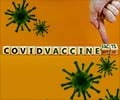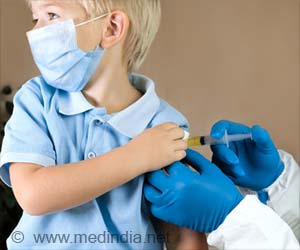How effective is COVID-19 vaccines against Delta and Omicron? Omicron is less severe than Delta and Pfizer vaccine remains effective in preventing hospitalizations.

‘Compared to Delta, Omicron-related COVID-19 hospitalizations were less likely to need a high level of oxygen support or more critical care, and less likely to have a hospital admission for more than three days.’





In the first study, researchers assessed whether Delta COVID-19 infection resulted in worse patient outcomes than Omicron COVID-19 infection, in hospitalized patients The study also aimed to provide more detailed data on patient outcomes, such as the need for respiratory support.Effectiveness of COVID-19 Vaccines Against Omicron and Delta Hospitalization
The research demonstrated that Omicron infection resulted in less serious outcomes than Delta in hospitalized patients. Compared to Delta, Omicron-related SARS-CoV-2 hospitalizations were 58% less likely to need a high level of oxygen support, 67% less likely to need ventilatory support (such as a ventilator) or more critical care, and 16% less likely to have a hospital admission which lasted for more than three days.By finding out the reduced requirement of increased oxygen support and total positive pressure support, including non-invasive ventilation, contributing to future hospital care and service planning assessments.
However, the impact of lower severity Omicron-related hospitalization must be balanced with increased transmissibility and overall higher numbers of infections with this variant.
Researchers suggest there should be ongoing evaluation of the severity of new variants of SARS-CoV-2, along with careful planning of healthcare resources to avoid healthcare systems being overwhelmed.
The second study provides the first estimates of two- or three-dose Pfizer-BioNTech -19 vaccine effectiveness against hospital admission for more than three days and against respiratory difficulty requiring oxygen or ventilatory support.
Advertisement
Using detailed clinical data from Bristol’s two hospital Trusts – North Bristol NHS Trust (NBT) and University Hospitals Bristol and Weston NHS Foundation Trust (UHBW) – researchers estimate the effectiveness of two- or three doses of the (original/monovalent) Pfizer-BioNTech vaccine against hospitalization for infection with either Delta or Omicron COVID-19 variants.
Advertisement
Two doses also prevented severe in-hospital outcomes due to Delta SARS-CoV-2 infection, reducing the likelihood of a hospital admission lasting more than three days by 63%. They also found that two doses of this vaccine reduced the risk of a patient needing increased oxygen or ventilatory support by 52% and 59%, respectively.
Receipt of three doses of Pfizer-BioNTech vaccine was also found to be effective in reducing Omicron infection severity, compared to the unvaccinated, including in older adults, reducing the risk of hospitalization for more than three days with Omicron SARS-CoV-2 by 56%, and decreasing the risk of needing high-level oxygen or ventilatory support by 42% and 59%, respectively.
This is additional evidence that the Pfizer-BioNTech vaccine is effective in reducing hospital admissions due to Delta and Omicron SARS-CoV-2 infection.
However, the benefit provided by vaccination decreases over time which appears to be more pronounced in older adults, so careful ongoing monitoring of vaccine effectiveness and SARS-CoV-2 disease severity for emerging variants remain important.
Source-Eurekalert














